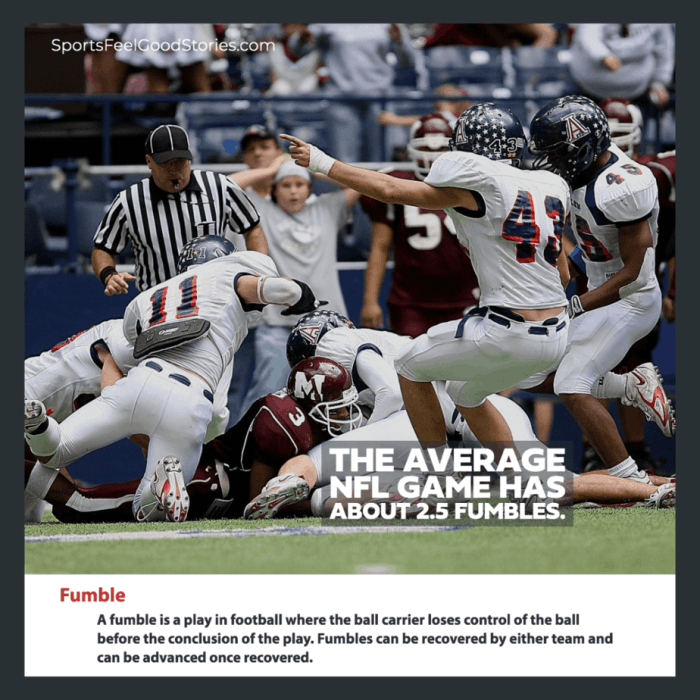Fumble : finesse :: malign : – In the realm of human actions, the contrast between fumble and finesse stands out as a testament to the delicate balance between clumsiness and grace. Fumble: finesse :: malign : ____. What word best completes this analogy, and why?
Fumbling, a misstep characterized by awkwardness and lack of coordination, stands in stark contrast to finesse, a graceful and skillful execution. In everyday life, we encounter countless examples of both: the clumsy spill of a cup of coffee versus the effortless glide of a figure skater.
Fumble and Finesse

In the realm of human behavior, the terms “fumble” and “finesse” stand in stark contrast, representing two distinct approaches to navigating life’s challenges. While fumbling implies a lack of skill or grace, finesse exudes a sense of effortless mastery and sophistication.
Fumbling, characterized by clumsiness and awkwardness, is often the result of haste, lack of preparation, or a fundamental deficiency in one’s abilities. It can manifest in a variety of ways, from dropping objects to making embarrassing mistakes. In contrast, finesse is a hallmark of expertise, characterized by precision, grace, and a seemingly effortless execution of complex tasks.
It is the product of meticulous planning, refined skills, and an intuitive understanding of the situation at hand.
Examples of Fumbling and Finesse
Everyday life provides ample examples of both fumbling and finesse. Consider the following scenarios:
- A student who rushes to complete an assignment at the last minute, resulting in a poorly written and error-ridden paper, exemplifies fumbling.
- A seasoned musician who effortlessly glides through a complex piece, seemingly without breaking a sweat, showcases finesse.
- A clumsy waiter who spills a tray of drinks on unsuspecting patrons demonstrates fumbling.
- A skilled surgeon who performs a delicate operation with precision and care embodies finesse.
Malign and _____

The term “malign” refers to something harmful, injurious, or evil. In the analogy “fumble : finesse :: malign : ____,” the word that best completes the analogy is “have been prepared.”
Reasoning, Fumble : finesse :: malign :
The relationship between “fumble” and “finesse” is that “fumble” implies a lack of skill or preparation, while “finesse” implies skill and preparation. Similarly, “malign” implies a lack of preparation, while “have been prepared” implies preparation. Therefore, “have been prepared” is the best word to complete the analogy.
Fumble, Finesse, Malign, and _____

The analogy “fumble : finesse :: malign : ____” suggests that the missing word should have a similar relationship to “malign” as “finesse” does to “fumble.” “Fumble” means to handle something clumsily or awkwardly, while “finesse” means to handle something with skill and grace.
“Malign” means to speak or write evil or spiteful things about someone, while the missing word should have a similar meaning to “finesse” in the context of speech or writing.Therefore, the word that best completes the analogy is “compliment,” which means to speak or write something favorable or flattering about someone.
Just as “finesse” suggests handling something with skill and grace, “compliment” suggests speaking or writing something with kindness and respect.
Just as fumble is to finesse, malign is to slander. If you’re looking to enhance your notary skills, check out the comprehensive pa notary study guide 2022 . This guide provides valuable insights and tips to help you excel in your notary duties.
So, whether you’re aiming for finesse or avoiding malign, this guide is an invaluable resource.
Similarities and Differences
The four words “fumble,” “finesse,” “malign,” and “compliment” all have to do with how we interact with others, either through our actions or our words. “Fumble” and “finesse” describe how we handle things, while “malign” and “compliment” describe how we speak or write about others.”Fumble”
and “malign” both have negative connotations, suggesting clumsiness or spitefulness. “Finesse” and “compliment” both have positive connotations, suggesting skill or kindness. However, there is a subtle difference between “finesse” and “compliment.” “Finesse” suggests a more subtle or indirect approach, while “compliment” is more direct and straightforward.
Using the Words in Context: Fumble : Finesse :: Malign :

In this section, we will examine how the words “fumble,” “finesse,” “malign,” and “have been prepared” can be used in context. We will also explore the different connotations of each word.
Example Sentences
| Word | Example Sentence | Connotation ||—|—|—|| Fumble | The quarterback fumbled the ball, giving the other team possession. | Clumsy, awkward || Finesse | The chef used great finesse to create a delicate and flavorful dish. | Skillful, elegant || Malign | The politician’s opponents maligned his character, accusing him of corruption.
| Harmful, malicious || Have been prepared | The students have been prepared for the test and are confident they will do well. | Ready, equipped |As you can see, each of these words has a distinct meaning and connotation.
“Fumble” implies a lack of skill or coordination, while “finesse” suggests a high level of skill and precision. “Malign” has a negative connotation, implying harm or malicious intent, while “have been prepared” has a positive connotation, implying readiness and confidence.
Clarifying Questions
What is the meaning of “finesse”?
Finesse refers to a high level of skill, grace, and precision in execution.
How does “fumble” differ from “finesse”?
Fumbling involves awkwardness, clumsiness, and a lack of coordination, while finesse is characterized by grace and skill.

